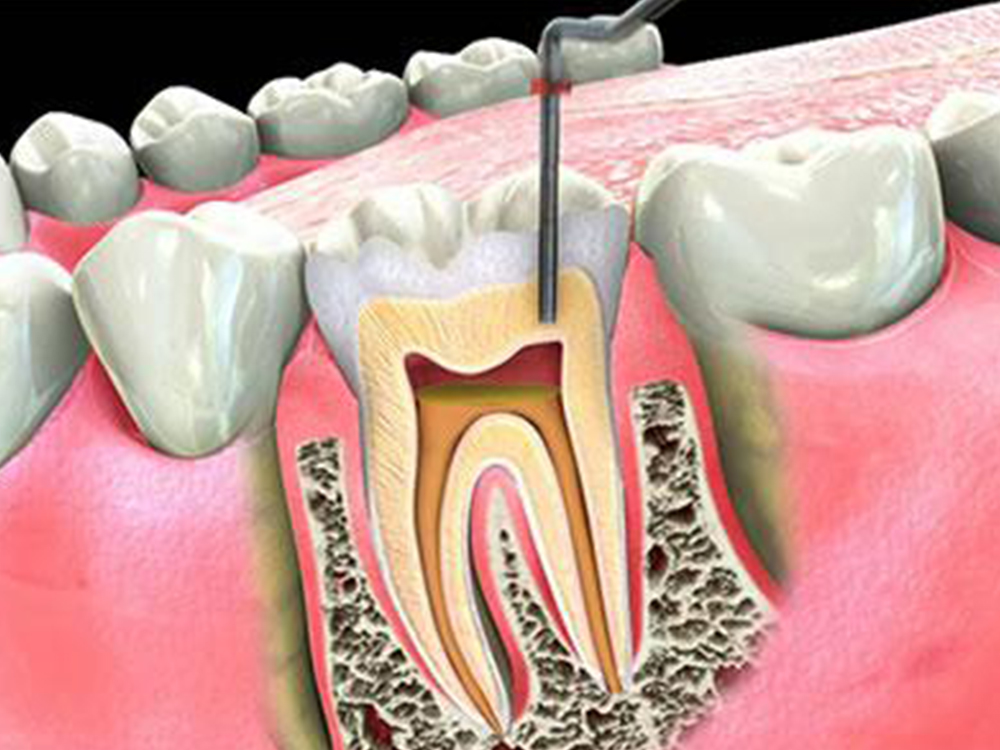Лечение на коренови канали (ендодонтия)
Лечението на коренови канали, известно още като ендодонтска терапия, е стоматологична процедура за лечение на инфекция или възпаление вътре в зъба. То е необходимо, когато зъбната пулпа (меката тъкан в кореновия канал) се увреди вследствие на дълбок кариес, травма или повтарящи се дентални манипулации.
Вместо зъбът да бъде изваден, при лечението на коренови канали инфектираната пулпа се премахва, зоната се дезинфекцира и запечатва – като така естественият зъб се запазва и функционира нормално.
Признаци, че може да се нуждаете от лечение на коренови канали
Силна зъбобол, особено при дъвчене или натиск
Чувствителност към топло или студено, която продължава
Подуване или болезненост на венците
Потъмняване на зъба
Наличие на абсцес или гной
Как протича процедурата?
1. Преглед и диагностика: Правят се рентгенови снимки за оценка на кореновите канали.
2. Упойка: Областта се обезболява за безболезнено лечение.
3. Почистване на каналите: Премахва се инфектираната тъкан и каналите се оформят.
4. Дезинфекция и запълване: Каналите се стерилизират и се запълват с биосъвместим материал.
5. Възстановяване: Поставя се пломба или корона за здравина и функция.
Предимства на лечението на коренови канали
Запазва естествения зъб
Възстановява дъвченето и нормалната функция
Предотвратява по-нататъшни инфекции и абсцеси
Запазва челюстната кост и подредбата на зъбите
Висока успеваемост и дълготрайни резултати
❓ Топ 10 често задавани въпроса за лечение на коренови канали
1. Болезнено ли е лечението на коренови канали?
Не. Съвременната упойка осигурява почти безболезнено изживяване.
2. Колко време отнема?
Обикновено 1–2 посещения, по 30–90 минути всяко.
3. Нужна ли е корона след лечението?
Често да, особено за задните зъби, за да се предотврати счупване.
4. Какво става, ако не лекувам зъба?
Инфекцията може да се разпространи, да причини болка, подуване или загуба на зъба.
5. Мога ли да се храня нормално след процедурата?
Да, но избягвайте дъвчене от лекуваната страна, докато не бъде напълно възстановена.
6. Ще изглежда ли зъбът различно?
Не, особено ако бъде възстановен с корона.
7. Колко дълго издържа лекуваният зъб?
При добра грижа може да издържи цял живот.
8. Може ли лечението да се провали?
Рядко, но при повторна инфекция може да се наложи повторно лечение.
9. По-добро ли е от вадене на зъб?
Да. Запазването на естествения зъб обикновено е най-добрият вариант.
10. Има ли подуване след процедурата?
Възможно е леко подуване или чувствителност, които обикновено отшумяват бързо.








